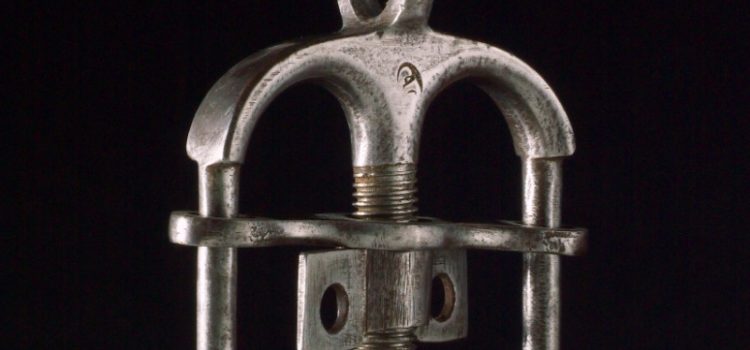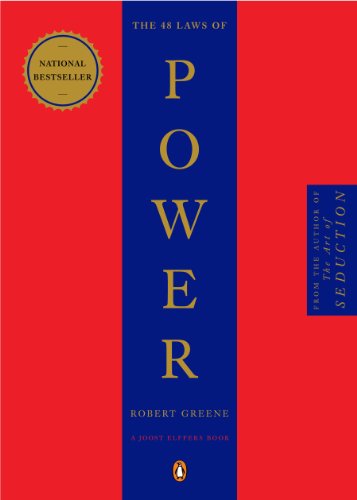

This article is an excerpt from the Shortform summary of "The 48 Laws of Power" by Robert Greene. Shortform has the world's best summaries of books you should be reading.
Like this article? Sign up for a free trial here .
Overview of Law #33: Discover Each Man’s Thumbscrew
Everyone has a weakness, a hole in his armor, a thumbscrew. It’s usually an insecurity, an uncontrollable emotion or need, or a secret pleasure. Once found, it’s leverage that you can use to your advantage.
Principles of Law 33
Everyone has a weakness, a button you can find and push. Some people show their weaknesses openly while others hide them. Discover each man’s thumbscrew. You can most effectively exploit the weaknesses of those who hide them. Push their buttons and you can easily deceive them or get them to do what you want.
According to Law 33 of the 48 Laws of Power, in your search to find and exploit someone’s weaknesses, you have to understand these principles:
Look and listen: No one keeps a secret. Even when people aren’t talking they convey a message with other signals such as body language. But talking is the place to start. Routine conversation is revealing — learn to listen. This is key to discovering each man’s thumbscrew.
Always seem interested — a seemingly sympathetic ear will get anyone talking. An old trick is to pretend to share a confidence with them; it can be inconsequential or even fabricated — it just needs to seem sincere. The other person will respond with a confidence of their own, which likely reveals a weakness.
Pay attention to details — what a person laughs at, how they respond to a waiter, what their clothes say about them. Focus on unconscious behavior.
Find out what they like most, and are always looking to get. Indulge their desires or tastes.
Tap into the inner child. Needs and weaknesses develop in childhood as a result of how we were treated, whether we were indulged or neglected, and whether emotional needs were met. These needs follow us into adulthood, although they may be buried, developing into weaknesses you can exploit. One clue that you’ve hit on something is when the person’s response is childlike. If you identify something missing from a person’s childhood, such as approval, provide a substitute. You can often discover each man’s thumbscrew in their childhood.
Look for the opposite. People who display a tendency or trait are often hiding its opposite. Those with big mouths are often cowards; the shy crave attention; the most critical person shares the vices he criticizes. See beyond appearances.
Find the linchpin. In groups and organizations, someone holds the key. Working behind the scenes, they know the score and have power and influence over the person at the top. They are essentially the group’s weak link. Through them, you can influence the boss or break through the group’s cohesiveness.
Fill the void. Everyone has emotional voids, which you can exploit to control them. Two typical voids are insecurity and discontent. Validate the insecure person, and find the source of the discontent or unhappiness. People are malleable when you address their unmet emotional needs.
Play on emotions. You can control people by playing on their strongest emotions and passions — the ones they have little control over or that seem disproportionate. For instance, paranoia, greed, fear, or hatred. An uncontrollable passion for the opposite sex is a weakness that can be used.
Putting Law 33 to Work
Look for the unhappy, the insecure, and the needy — discovering each man’s thumbscrew is a ticket to power. Here are some examples of how to apply Law 33 of the 48 Laws of Power:
- Art dealer Joseph Duveen made money by exploiting the weaknesses of wealthy heiress Arabella Huntington. Duveen realized she was insecure because she’d come from humble roots, so he flattered and subtly educated her, encouraging a taste in art that he could then cater to. He sold her the most expensive painting anyone had bought up to that time.
- Con artist Victor Lustig won the trust and then swindled a newly rich businessman by seeming to offer the friendship, validation, and social connections the man hungered for.
- In the 1500s, French regent Catherine de Medici controlled many ambitious men who threatened her power, by playing to their insatiable passions for women. She created a so-called “flying squadron” of skilled mistresses who seduced them and reported their plans back to Catherine.
- Prussian minister Bismarck pushed King William to build up the army and fight three wars, by playing on his insecurity about his manhood and secret desire to be seen as courageous.
Exceptions to Law 33
Are there any exceptions to Law 33 of the 48 Laws of Power? Should you ever not discover each man’s thumbscrew? When pushing people’s buttons, it’s easy to go too far. When you play on strong emotions and needs, people may go further than you intend or turn against you. Always look several steps ahead and be prepared to address such possibilities. But still, follow Law 33 of the 48 Laws of Power: Discover Each Man’s Thumbscrew.
———End of Preview———

Like what you just read? Read the rest of the world's best summary of "The 48 Laws of Power" at Shortform . Learn the book's critical concepts in 20 minutes or less .
Here's what you'll find in our full The 48 Laws of Power summary :
- Why you should never outshine your boss
- How to appear like a friend but behave like a spy
- The 6 rules you absolutely must not violate, if you want to be successful






